

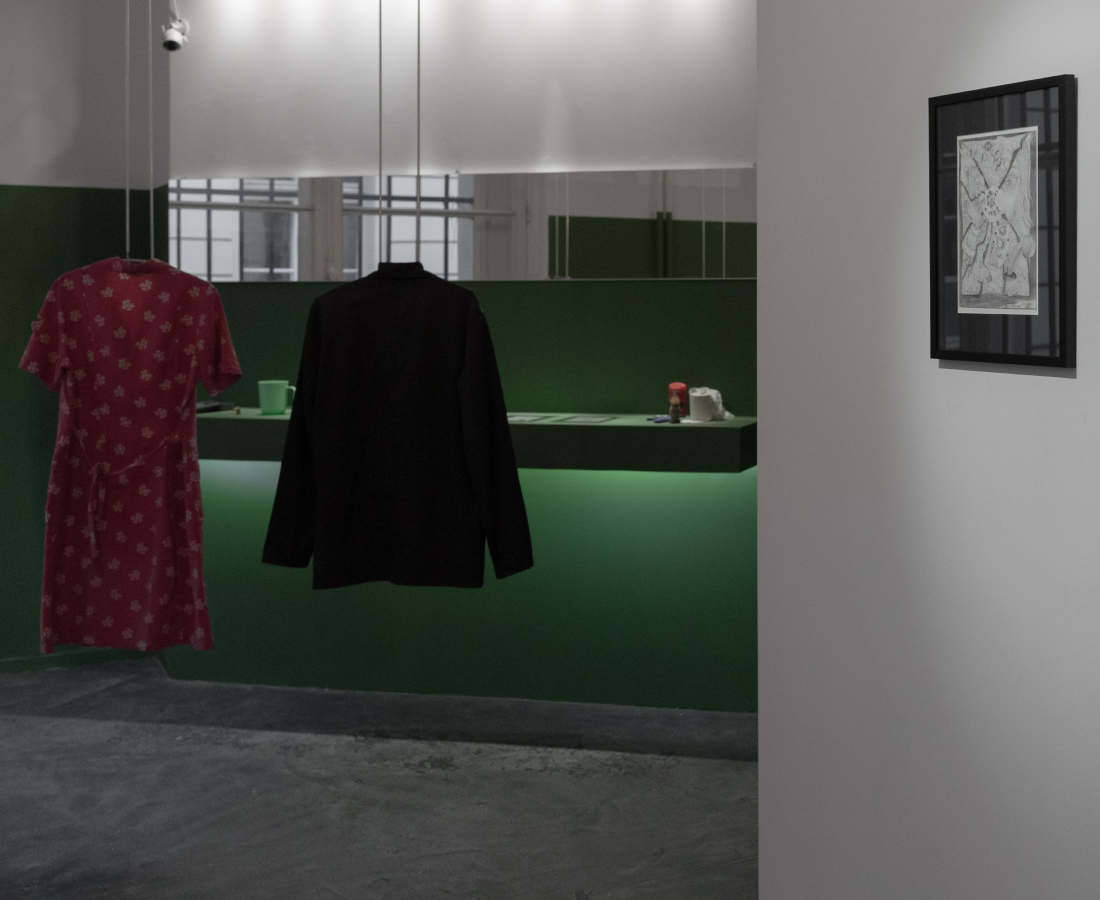
*The project is financially supported by the Embassy of the Kingdom of the Netherlands in Warsaw.
As part of the three-year initiative “Free Belarus Museum as a Center for Preserving Historical Memory,” a comprehensive program is being implemented to museumify the history of the 2020 Belarusian protest movement and the ongoing democratic transformation of Belarus, while ensuring its broad public representation.
The project includes several key directions:
The project also highlights several cross-cutting themes:
Between August 31, 2024, and July 1, 2025, targeted activities were conducted to search for, select, document, and catalogue museum artifacts.
In total, 341 items were selected and entered into the museum’s electronic inventory books (databases).
A special section titled “Exhibits” was launched on the museum’s social media pages, where information about new acquisitions was regularly published, including video interviews with donors who contributed artifacts to the collection.
At this stage of the project, all catalogued items were entered into the internal electronic inventory database.
A prototype of the museum website (online portal) was created, including the development of its architecture, design concept, and navigation structure.
An internal testing phase of the website was successfully completed.
As part of the project, extensive work was carried out to identify partners and expert co-authors.
As a result, the Museum of Free Belarus became the initiator of the Belarusian Museum Lab — a professional community of Belarusian experts and specialists in museology, cultural studies, history, and heritage preservation, currently working in forced exile.
The first meetings of the Belarusian Museum Lab (held in both online and offline formats) took place on March 6–7, 2025, with 25 participants in attendance.
The second meeting of the Belarusian Museum Lab representatives was organized as part of the European Museum of the Year Award Forum (EMYA-2025) in Białystok, where the museum ensured the participation of five Lab members.
As part of the project “Museum of Free Belarus as a Center for Preserving Historical Memory,” three exhibition projects were held during the reporting period.
4.1. Exhibition “Nothing Particularly New”
The exhibition opened on May 21, 2025, on the International Day of Solidarity with Belarusian Political Prisoners, with the participation of representatives of European embassies and members of the Polish Sejm and Senate.
The display featured personal belongings of political prisoners donated to the museum:
letters, notes, diaries, prison clothing, and hygiene items.
All exhibits were authentic objects brought from Belarusian prisons by former inmates.
The sound design of the exhibition included recordings of testimonies by political prisoners, read by the prisoners themselves, as well as poems written in prison and performed by Belarusian artists who had faced repression.
In total, the exhibition presented materials (objects and audio recordings) from 25 Belarusian political prisoners.
The exhibition attracted at least 250 visitors, and due to public interest, its duration was extended until August 3, 2025.
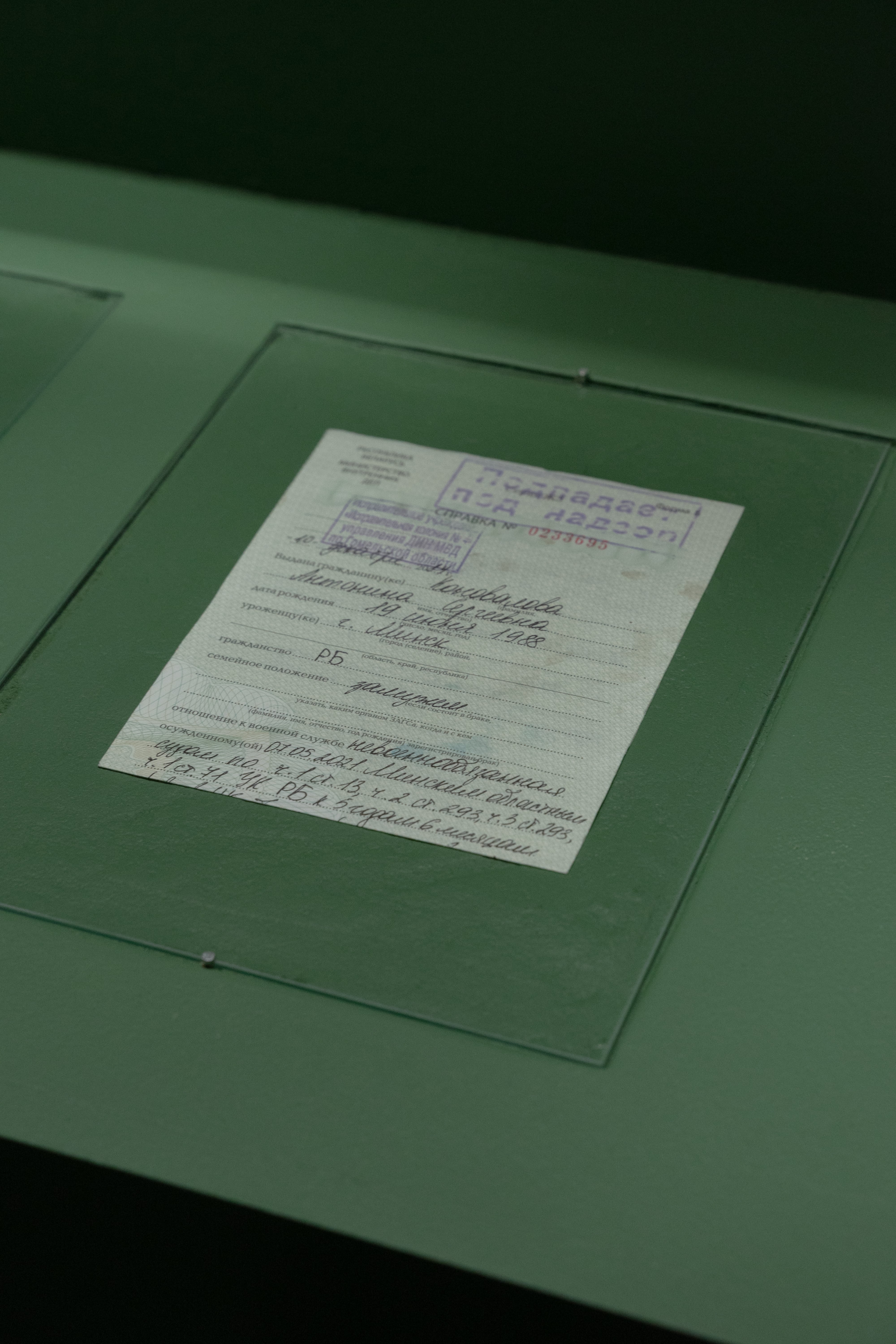
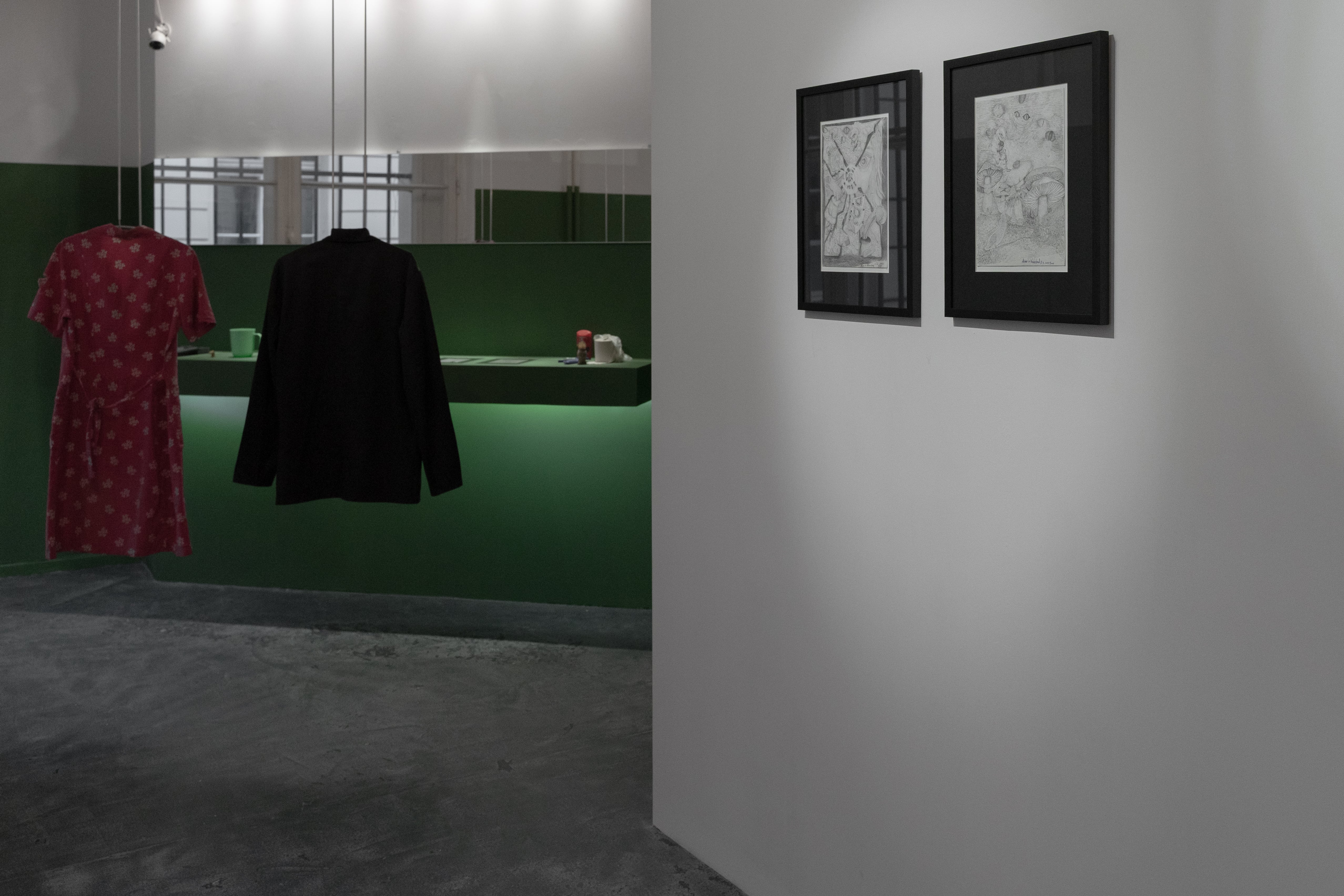
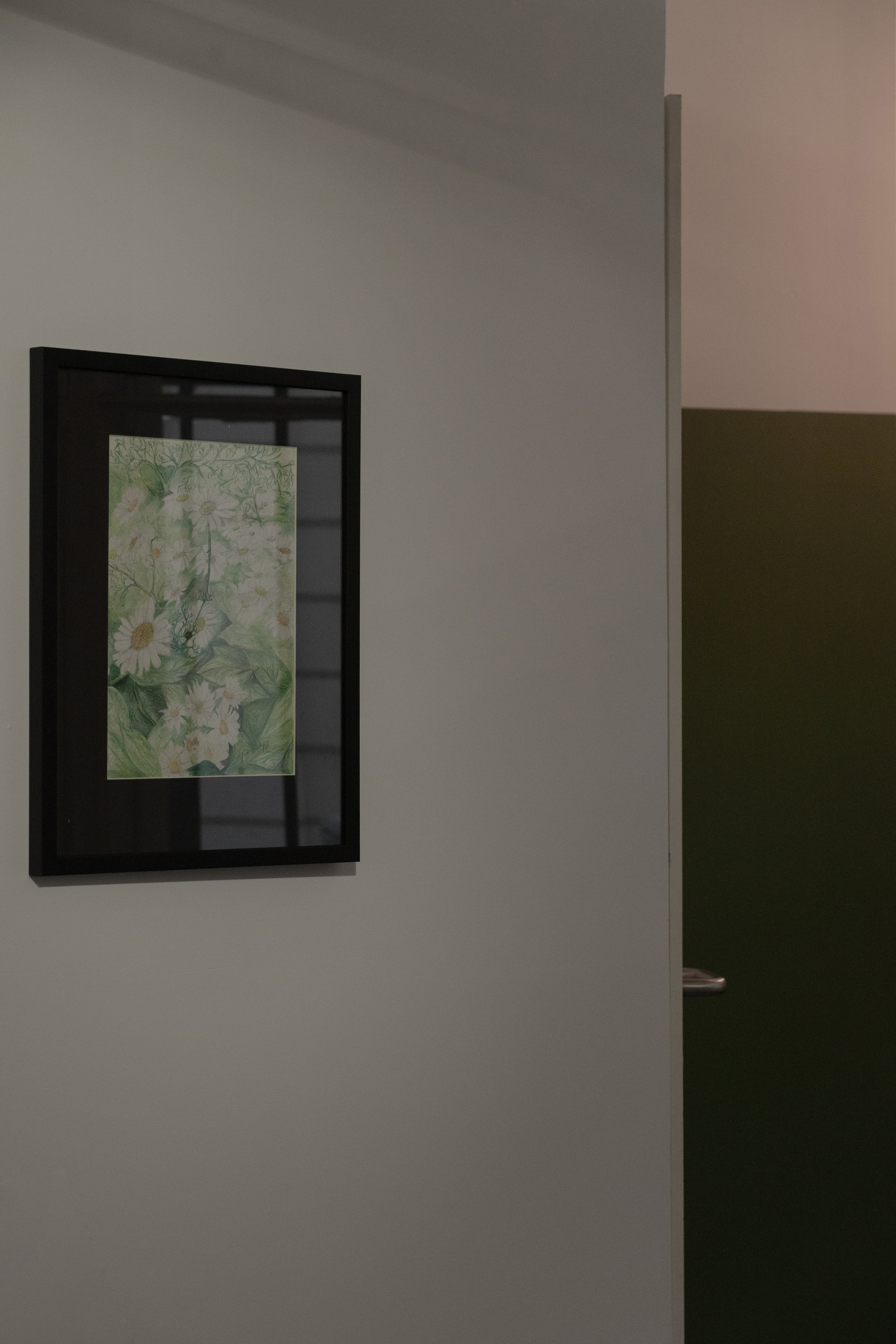
Media Coverage:
4.2. Exhibition “Fragments”
The exhibition was timed to mark the third anniversary of the Museum of Free Belarus and showcased a selection of its collections from 2020–2025. The display included personal belongings of participants in peaceful protests, political prisoners, Belarusian volunteers, and individuals involved in the war in Ukraine.
The exhibition was attended by at least 350 visitors and received extensive coverage in independent Belarusian media, as well as numerous positive reviews.
The project was co-financed by the City of Warsaw.
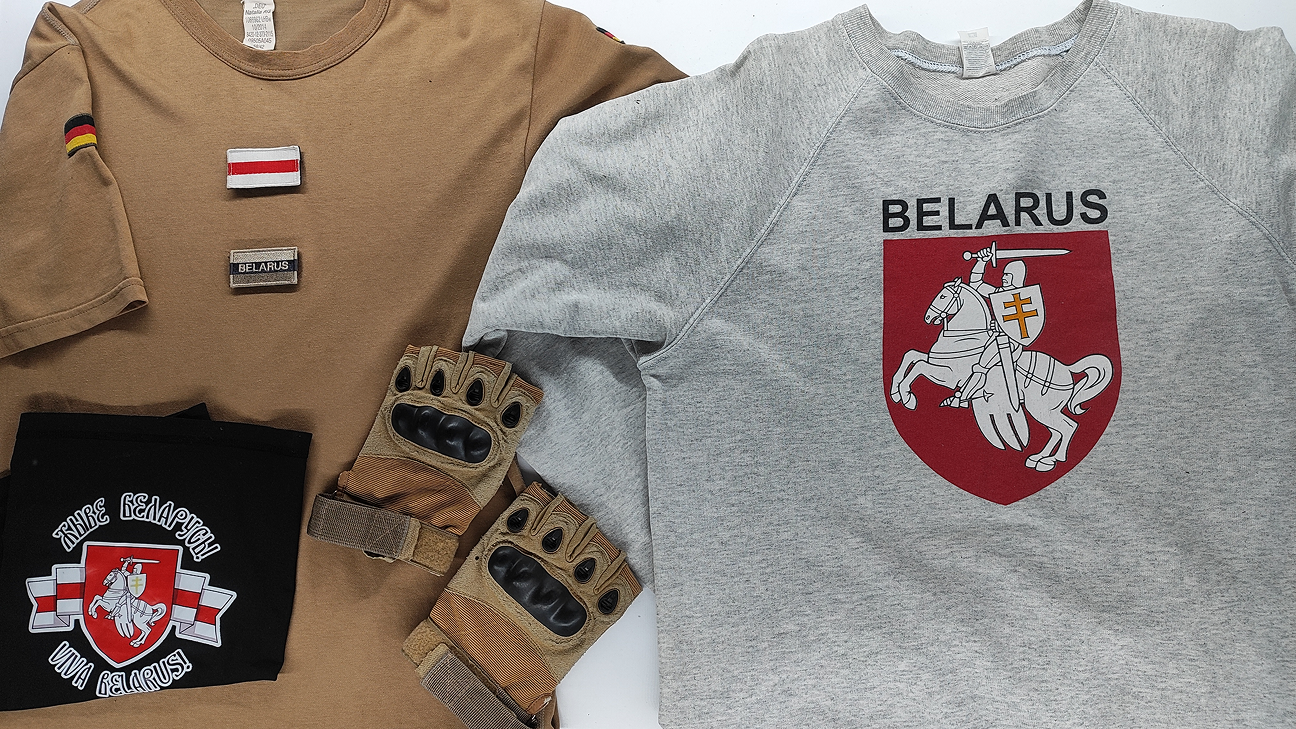
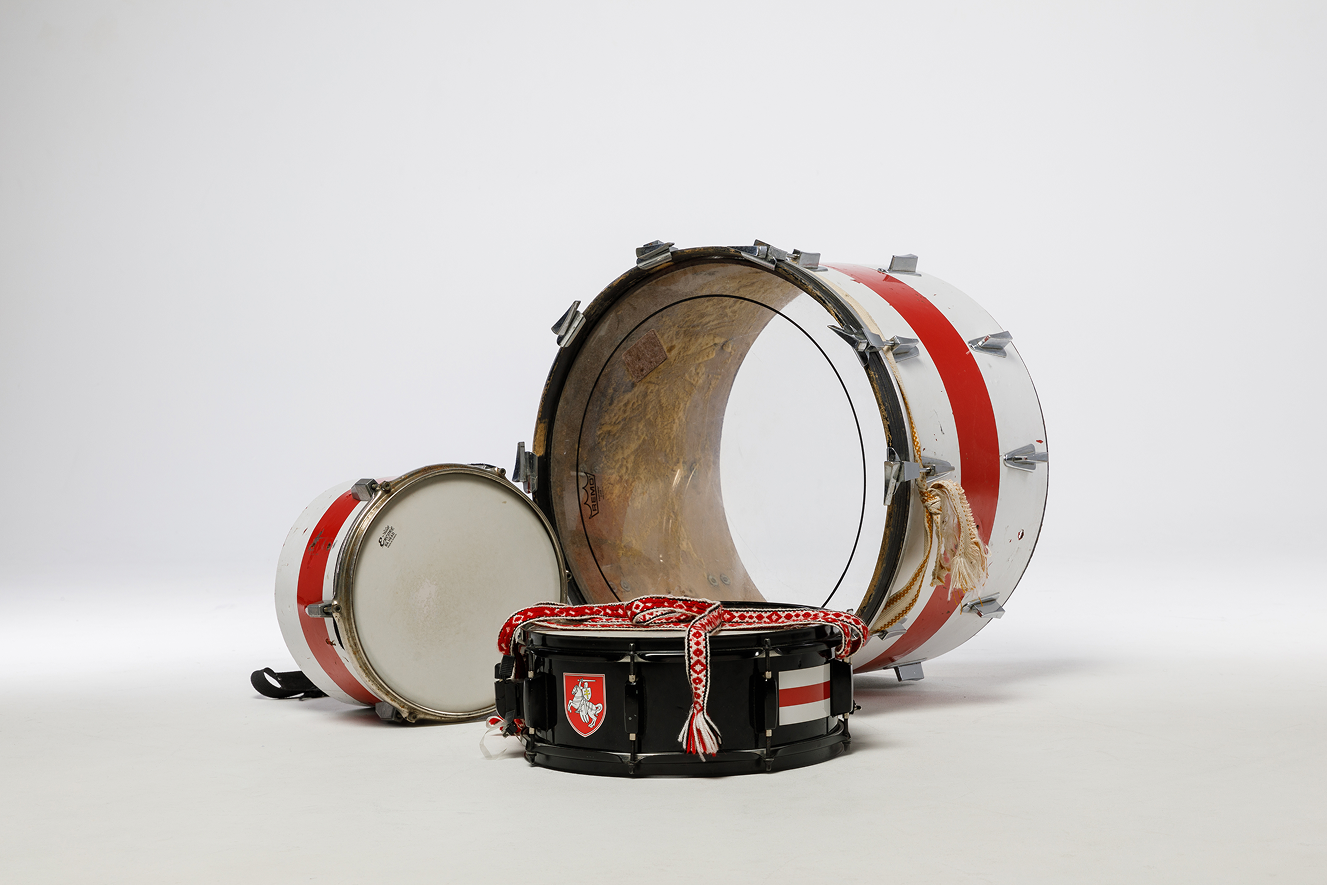
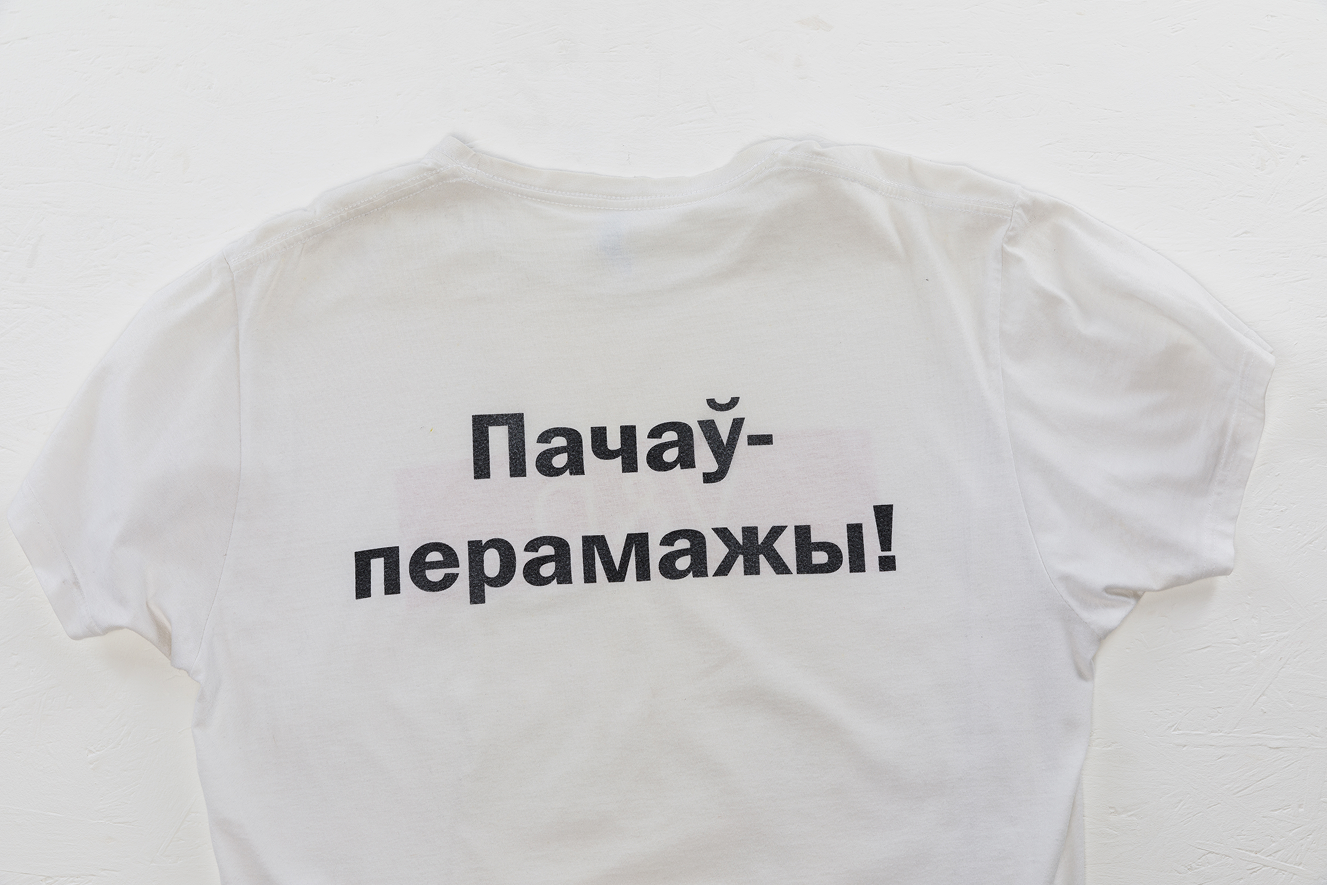
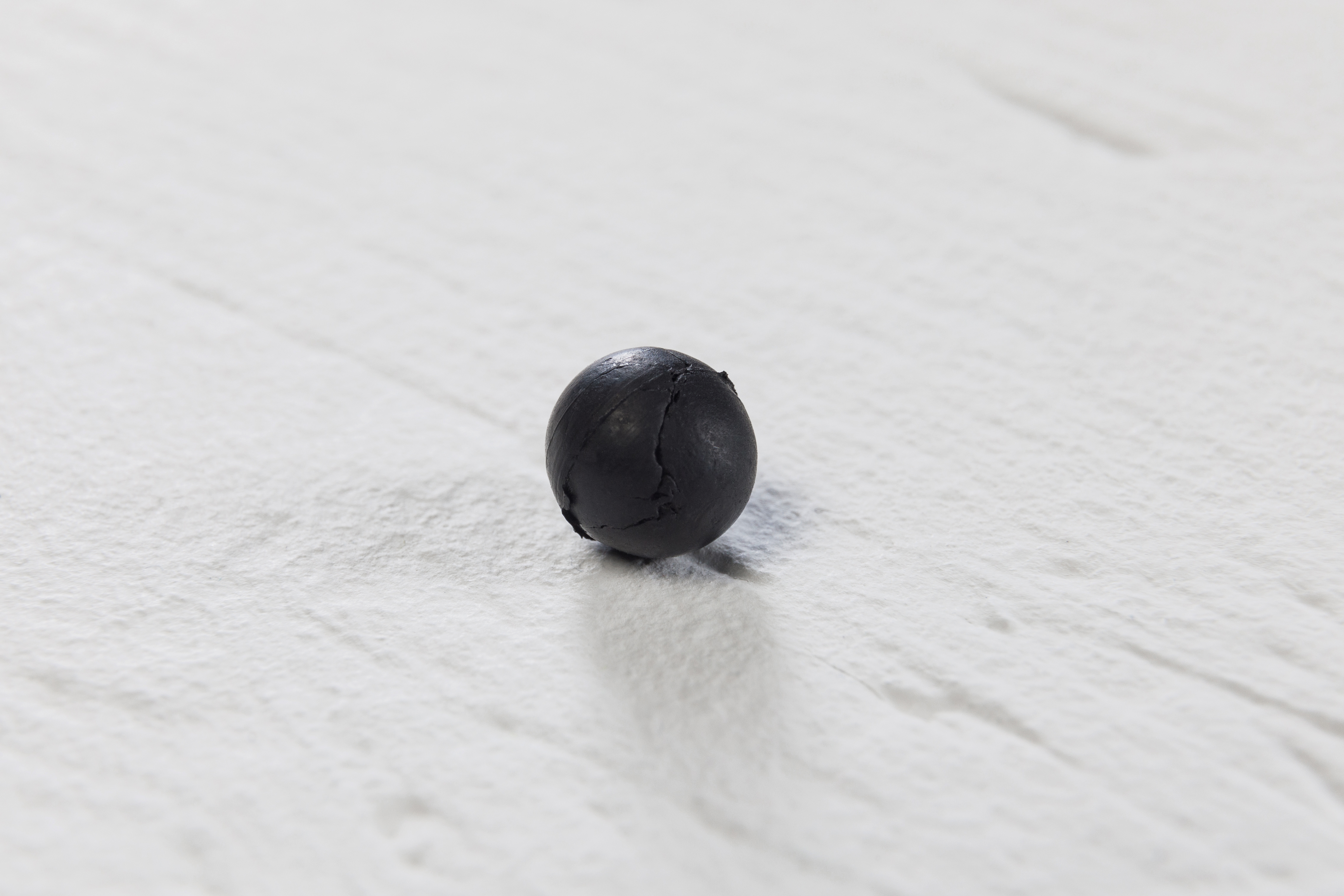
Media Coverage:
4.3. Exhibition “Five Artifacts and Only One Night”
The exhibition was organized to mark the International Museum Day and the “Night of Museums” event.
For the first time, five historical and cultural artifacts from the 17th–18th centuries acquired by Belarusian initiatives in exile were presented.
Among them was a secret letter by Jan Antoni Harain, the Voivode of Brest, written during the First Partition of the Polish–Lithuanian Commonwealth — a valuable exhibit purchased by the Museum as part of this project.
The exhibition attracted over 150 visitors during the Night of Museums event.
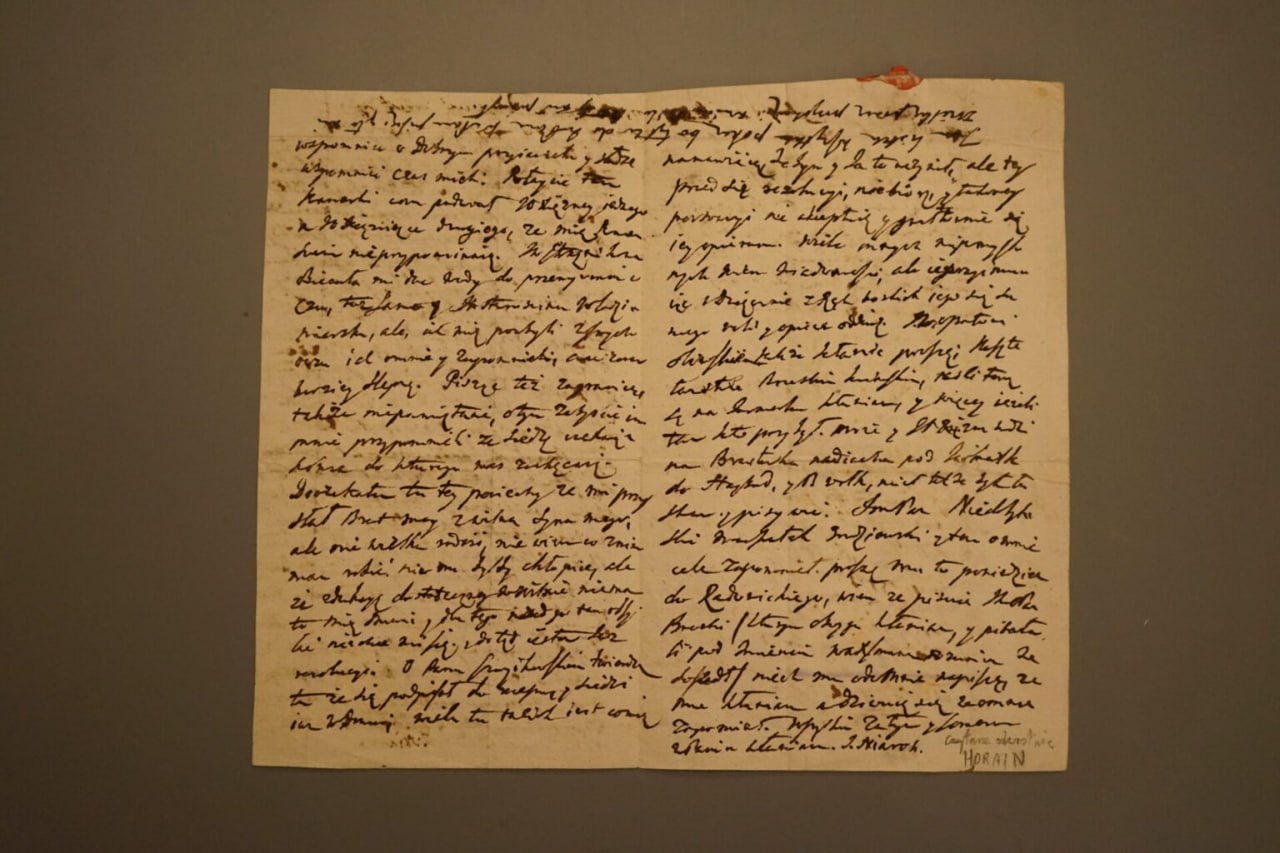
Media Coverage: